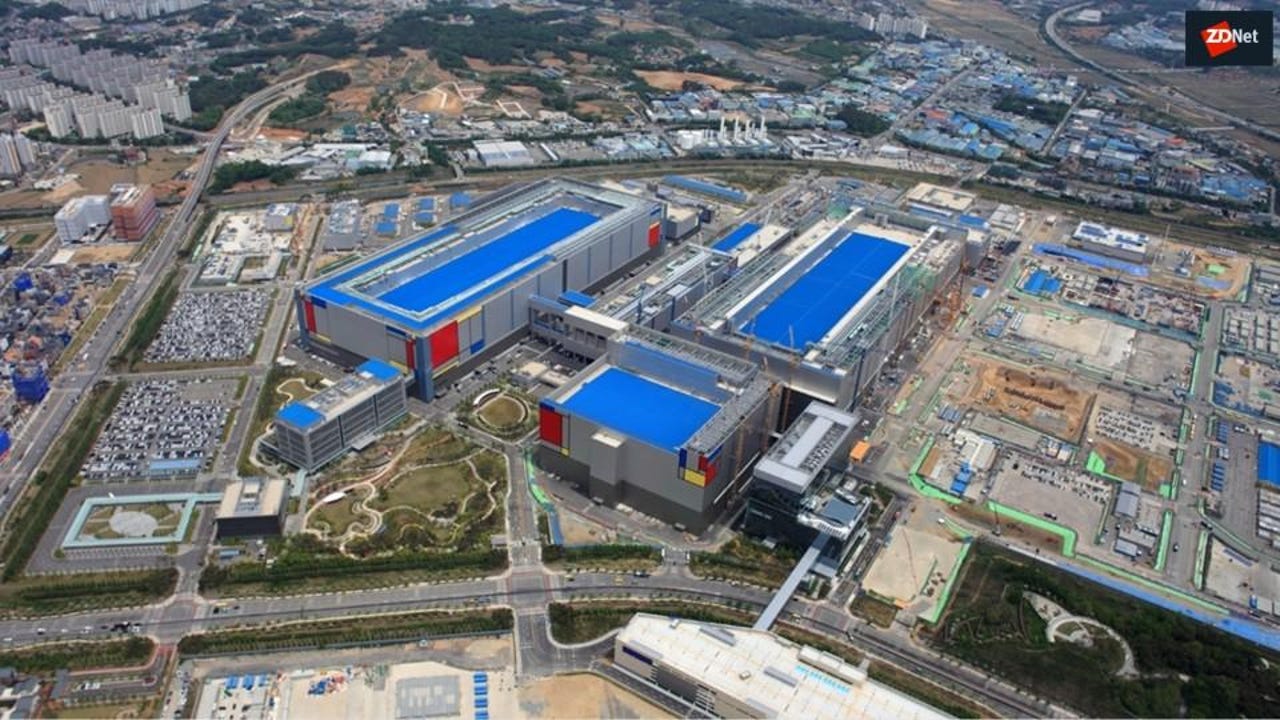
































Samsung is the world's largest memory chip maker and the second-largest contract chip maker.
SamsungSamsung reported its lowest profit in 14 years for the first quarter this year from the heavy loss incurred by its chip division.
The South Korean tech giant said on Thursday that it recorded 63.75 trillion won in revenue and 0.64 trillion won in operating profit for the quarter, a drop of 18% and 96%, respectively, from a year ago.
Samsung's Device Solutions Division, its chip division, reported a steep operating loss of 4.58 trillion won. The company said the performance of its memory chip business fell significantly from the previous quarter due to the overall decrease in demand amid an economic slowdown and weakened customer spending.
Other memory chip companies SK Hynix and Micron had also reported heavy losses for their latest fiscal quarters from this sluggish demand and oversupply of memory chips. All three companies have announced that they are planning to lower their production output.
The slowdown in demand for DRAM, which has been consistently in high demand by server customers for years now, has been one of the most significant causes of the downturn. For the first quarter, Samsung said its bit growth could not meet its previous guidance, meaning it produced less DRAM than planned. However, for NAND, the tech giant said it achieved its goal and more as most products were shifting toward higher-density chips, allowing Samsung to sell more premium products.
Besides memory, Samsung's logic chip businesses also saw weak demand in the quarter. Sales of SoCs, sensors and display chips all fell while demand for its contract chip production service, or foundry, also dropped.
While the recovery in demand for chips in the next quarter will be limited, the market is expected to gradually recover as customer inventories normalize, Samsung said.
Meanwhile, Samsung's Device Experience Division, its consumer electronics division, reported an operating profit of 4.21 trillion won. Out of this total, the MX Business, Samsung's smartphone business unit, contributed 3.94 trillion won, one of its strongest performances in recent years. Demand for premium smartphones was high during the quarter and the strong performance of Galaxy S23 Ultra allowed the business unit to secure double-digit profitability, Samsung said.
Samsung Display also contributed a respectable 0.78 trillion won, thanks to the high demand for foldable display panels from smartphone manufacturers and its QD-OLED panels from TV makers. And despite the overall poor performance for the first quarter, Samsung spent 10.7 trillion won on its facilities, its highest spending figure for the quarter to date. Of this total, 9.8 trillion won was spent on its chip production facilities in preparation for future supplies, the tech giant said.
Software as a Service offers irresistible benefits for organizations of all sizes - from cost savings to scalability to mobile accessibility.
Read now Tags quentes :
Negócio
Empresas
Tags quentes :
Negócio
Empresas